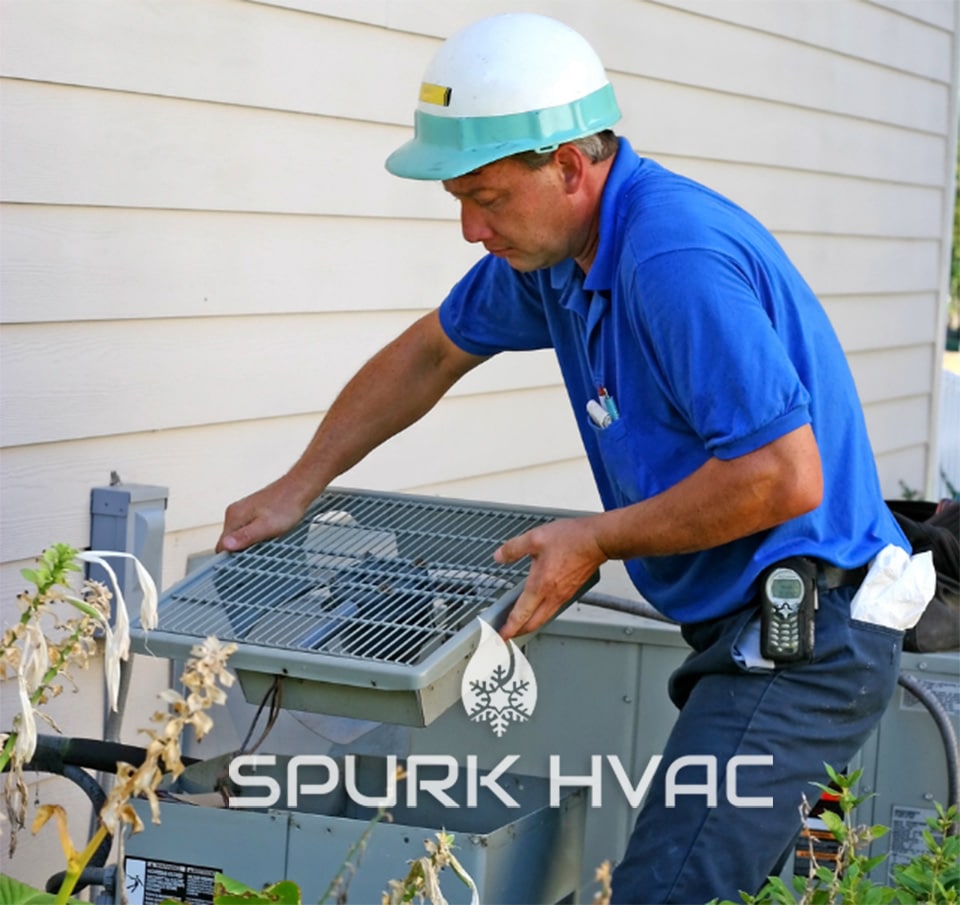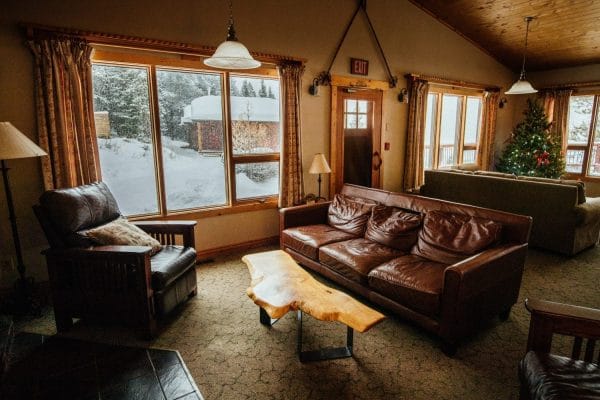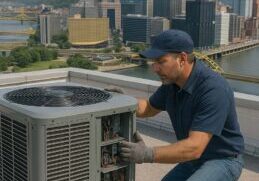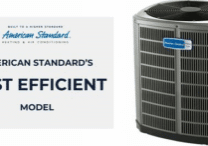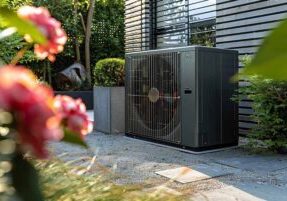Cold winter days and nights can drive up the cost of heating your home. There are a few things you can do to ensure your home is warming at peak performance.
Winter Heating Bill
Heating and cooling a home makes up an average of 42% of monthly utility bill costs according to the U.S. Department of Energy. While colder outside temps mean it will take more energy to keep your home warm and comfortable, try these easy-to-implement tips that can make your home more efficient and keep your energy bill a little lower this winter:
Thermostat Discipline
You’d be surprised how fast the savings can rack up when you lower your thermostat just a few degrees each day. When you are away from your home, try dropping the temperature. A reduction of about 10 degrees Fahrenheit can save up to 10 percent on your monthly energy bill. And, if you want to avoid being chilly while the temperature heats back up, you can install a timer or ‘smart’ thermostat to begin the heat-up during your commute home.
Dress Warmly
By wearing warm, comfy layers around the house you can stay warm while turning down the thermostat a few degrees. Leaving the thermostat set to a lower temperature throughout the house while using space heaters in the rooms you spend the most time is another way to avoid cranking up the heat where it isn’t needed. If you find you have to customize too drastically between rooms throughout the house, consider installing a zoned heating system to easily heat on demand when you need it.
Keep the Cold Air Out
Ceiling fans have a winter setting — often in the form of a switch on the hub or remote — that helps to circulate rising warm air evenly throughout the living space. By utilizing this feature, you can prevent warm air from accumulating near your ceiling. In your kitchen and bathrooms, make sure to turn off or close your hood and ceiling vents to prevent pushing warm air outside. Likewise, make sure any fireplace openings are firmly closed when not in use.
Reduce Hot Water Usage
Heating the water in your home takes a lot of energy when the ambient temperature drops. By reducing the amount of hot water you use, you can save a lot of money in the cold winter months. Also, check the settings on your water heater. Lowering the temperature setting is an easy way to conserve energy and save money.
How to Winterize a Home
A quick audit of your insulation, windows, and furnishings could give you quick heating solutions that will save you money in the long run. Getting your house ready for the colder temps is called winterizing your home and is always a smart move.
Good insulation is the foundation of heating a home efficiently. So, if your insulation is faulty, out of date or inadequate for the climate in which you live, heat can be escaping from throughout your home. Perform a quick test by touching the walls and ceilings around your home. They should feel warm and dry, so any damp or cold surfaces are an indication of inadequate insulation. If you suspect your home may be poorly insulated, schedule a consultation with heating specialists.
Cold air coming from windows and doors means heat is escaping and your heating system has to work harder to keep your home warm. Low-costs solutions like plastic window sheeting, cold-weather drapes, rugs, and door sweeps are quick ways to keep cold air from getting in.
Together, these tools and practices can give you a huge return-on-investment by lowering your monthly energy bills.
About Spurk HVAC
Spurk HVAC was formed in 2018 and is located in Warrendale, Pennsylvania. We proudly serve Cranberry Twp., Wexford, Gibsonia, Mars, and the surrounding areas. We are an American Standard Customer Care Dealer and a Mitsubishi Diamond Contractor.
We service all makes and models. Please contact us if you are seeking heating repair, heating system replacement, air conditioner repair, air conditioning maintenance, air conditioning replacement, or any other heating & cooling services. Whether you are looking for residential or commercial HVAC services, we look forward to any and all opportunities to become your preferred HVAC contractor.



